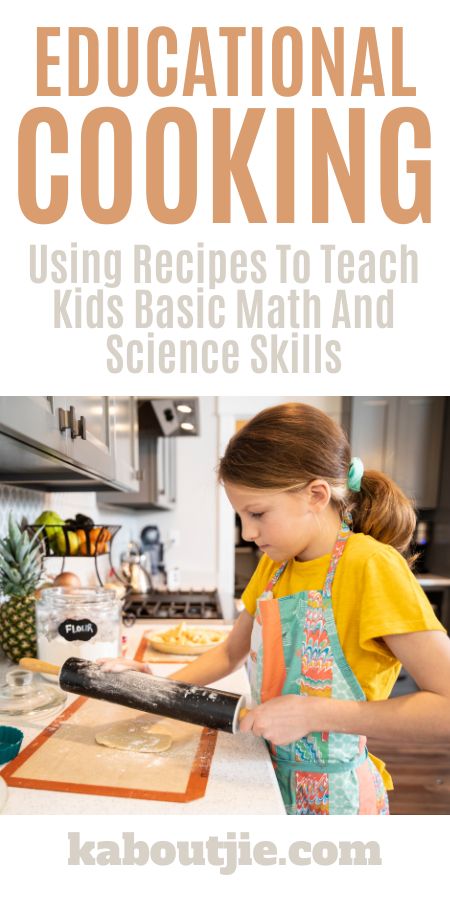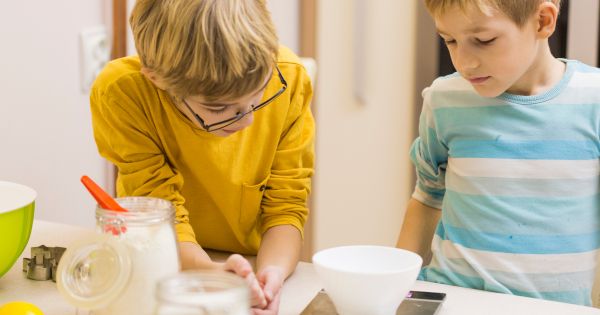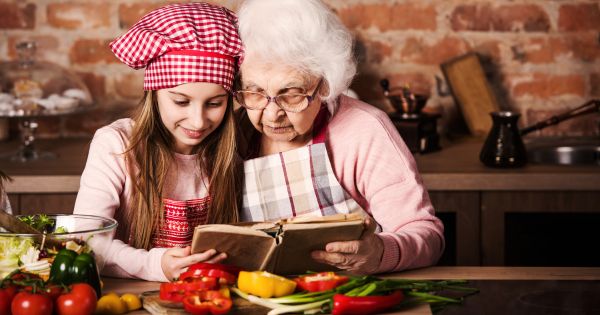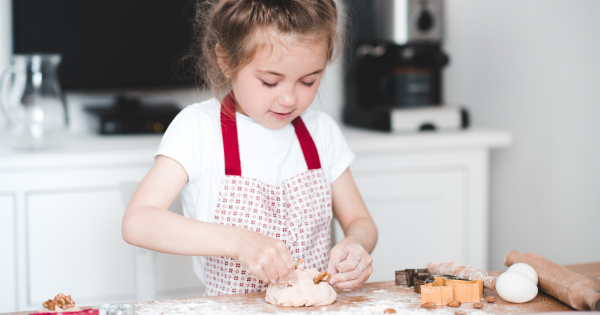Cooking with kids isn’t just about making meals together; it’s an opportunity to teach valuable math and science concepts in a hands-on, fun environment. By getting them involved in the kitchen, you can make learning engaging and practical. From fractions and measurement conversions to scientific changes in food, the kitchen offers endless opportunities for children to learn while having fun.

Teaching Measurement Conversion
Cooking is a great way to teach kids about measurement conversion. Recipes often require adjusting ingredient amounts, making this an excellent opportunity to practice math skills like fractions, division, and multiplication. Ask your child to double a recipe or convert cups to grams, explaining how different units work.
For example, if a recipe calls for ¾ cup of milk, and you’re doubling it, ask your child how much milk they’ll need. This not only teaches them about fractions but also builds problem-solving skills.
For a more in-depth guide to measurement conversions, visit this resource: Culinary Schools Measurement Conversion. This page offers a variety of conversion charts, making it easy for you and your child to master these skills.
The Science Behind Cooking: What’s Happening to the Food?
Cooking is also an excellent way to introduce your kids to the wonders of science. When you bake a cake, make bread, or fry an egg, scientific principles come into play. By explaining these processes, you can help your child understand the chemistry happening in the kitchen.
For example, when making bread, explain how yeast produces gas, causing the dough to rise, which teaches the basics of fermentation. Or when frying an egg, talk about how the heat causes proteins to denature, changing their structure from liquid to solid. These simple concepts can spark curiosity in how food transforms during cooking.
Encourage your child to ask questions and observe changes while cooking. They might even start experimenting, using their growing scientific knowledge.

Learning Time Management In The Kitchen
Cooking also teaches kids how to manage time effectively. Many recipes require precise timing, whether it’s setting the oven or monitoring how long something needs to simmer on the stove. By following these time constraints, your child learns how to stay organised and meet deadlines.
Involving them in tracking the cooking process, such as setting timers or multitasking between different parts of a recipe, is a great way to strengthen time management skills. These skills are not only important in the kitchen but are also useful in other areas of life, like schoolwork and extracurricular activities.
Cooking Games For Kids
For a more interactive and playful approach, cooking-themed games can be an excellent way to reinforce math and science skills. These games challenge kids to follow recipes, measure ingredients, and practice time management in a fun, game-like setting. Whether they’re assembling ingredients for a pizza or managing orders in a virtual kitchen, kids can develop essential skills without realising they’re learning.
Cooking games also help boost their confidence in a playful, low-pressure environment. If you’re looking for some fun options, explore this resource: Culinary Schools Kids’ Cooking Games. The selection of free games will keep your kids entertained and learning at the same time.

Researching New Recipes To Try
Another valuable skill your kids can develop through cooking is researching and choosing new recipes to try. This teaches them how to seek out information and make decisions based on ingredients, time, and difficulty level.
Take some time to explore different cookbooks or online recipe websites with your kids. Encourage them to choose a dish they want to try and help them gather the necessary ingredients. Not only will this help them become more independent in the kitchen, but it will also develop their ability to plan, think critically, and research effectively.
Involving them in the process of selecting new recipes empowers them to take ownership of their cooking journey and makes the experience more exciting.
Building Confidence Through Cooking
Allowing your child to take an active role in cooking helps build their confidence and independence. When they successfully complete tasks like measuring, stirring, or even following a recipe from start to finish, it gives them a sense of accomplishment. Let them take the lead in simple tasks, like stirring the pot or cracking an egg, to boost their confidence in handling more complicated steps over time.
With every successful dish, they’ll grow more confident, learning that they’re capable of problem-solving, creativity, and managing tasks on their own.

Turning Cooking Into A Family Bonding Activity
Cooking together is also a wonderful way to bond as a family. Not only does it create lasting memories, but it also teaches collaboration, teamwork, and communication. Assign each family member specific roles, whether it’s chopping vegetables, measuring spices, or setting the table. By working together, everyone contributes to a delicious meal, making the experience enjoyable and educational.
These bonding moments help foster a love for cooking and strengthen family relationships in the process.
Final Thoughts
Cooking with your kids can be so much more than just making meals—it’s a gateway to teaching them essential life skills like math, science, time management, research, and confidence-building. By getting them involved in measuring, observing scientific changes, and researching recipes, you’re setting them up for success in both the kitchen and beyond.
With the help of resources like measurement conversion charts and cooking games, the learning doesn’t have to stop once the meal is ready. So, next time you’re cooking with your children, turn it into a fun, educational experience that they’ll cherish for years to come!
 Kaboutjie SA Mommy Blogs by Lynne Huysamen
Kaboutjie SA Mommy Blogs by Lynne Huysamen




